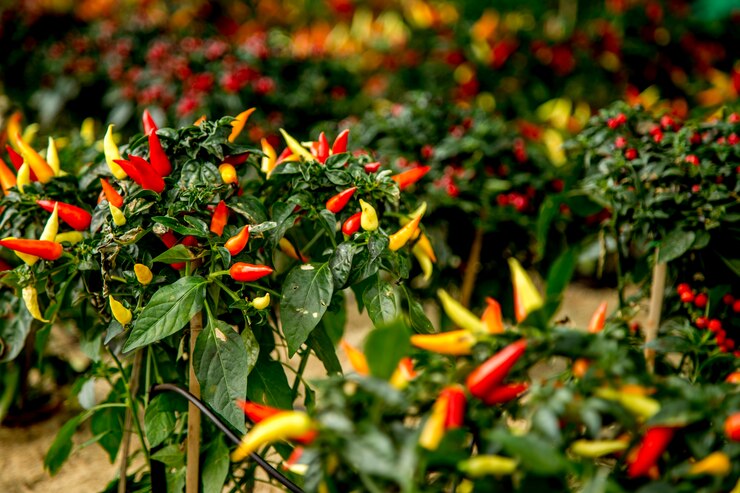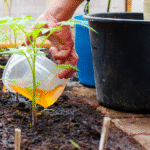Chilli farming can be highly rewarding, but one of the biggest challenges growers face is pest infestation. Aphids, thrips, whiteflies, and mites are common enemies that can reduce yield, damage fruit quality, and stress the plants. Fortunately, natural pest control methods offer an effective and environmentally friendly alternative to chemical pesticides. By focusing on prevention, biological control, and organic treatments, farmers can protect their chilli crops while preserving soil health and biodiversity.
The first step in natural pest control is prevention. Healthy plants are more resistant to pests, so it’s important to begin with good agricultural practices. Use well-drained, fertile soil enriched with compost or organic matter. Rotate crops each season to prevent pest buildup in the soil. Intercropping chilli with herbs like basil or marigold can also help deter pests, as their strong scents confuse and repel insects.
Companion planting is another effective preventive strategy. Plants like garlic, coriander, and onions can repel common chilli pests. At the same time, flowering plants such as sunflowers and cosmos attract beneficial insects like ladybugs and lacewings that feed on aphids and other harmful bugs.
Monitoring is crucial in early pest control. Regularly inspect the undersides of leaves and new shoots for signs of insects or damage. Installing yellow sticky traps around the farm can help capture flying pests like whiteflies and thrips, giving you an early warning before infestations grow.
When pest populations begin to rise, biological control methods can be introduced. These involve using natural predators or parasites to reduce pest numbers. For example, releasing predatory insects such as ladybugs, parasitic wasps, or predatory mites can naturally keep pest populations in check. Encouraging birds and frogs by maintaining nearby trees or water sources also supports natural pest predators.
Organic sprays made from readily available ingredients can also be highly effective. A simple neem oil solution — made by mixing neem oil with water and a few drops of liquid soap — acts as a powerful repellent and disrupts insect feeding and reproduction. Garlic-chilli spray, created by blending garlic and chillies with water and soap, is another homemade remedy that deters pests while being safe for the environment.
Diatomaceous earth, a natural powder made from fossilized algae, can be dusted around the base of plants. It works by damaging the outer layer of soft-bodied insects like aphids and thrips, causing them to dehydrate and die. This method is safe for humans and pets but effective against many small pests.
Maintaining overall garden hygiene is also important. Remove infected or dead plant material promptly, and avoid overwatering, which can encourage fungal growth and pest infestations. Mulching with straw or grass helps suppress weeds and maintains soil moisture, creating less favorable conditions for pests.
By combining these natural techniques, chilli farmers can effectively manage pest issues without relying on synthetic chemicals. Not only do these methods help protect the environment, but they also produce healthier crops that are safer for consumers. With regular care and a focus on prevention, natural pest control can be both practical and sustainable for chilli farming success.







